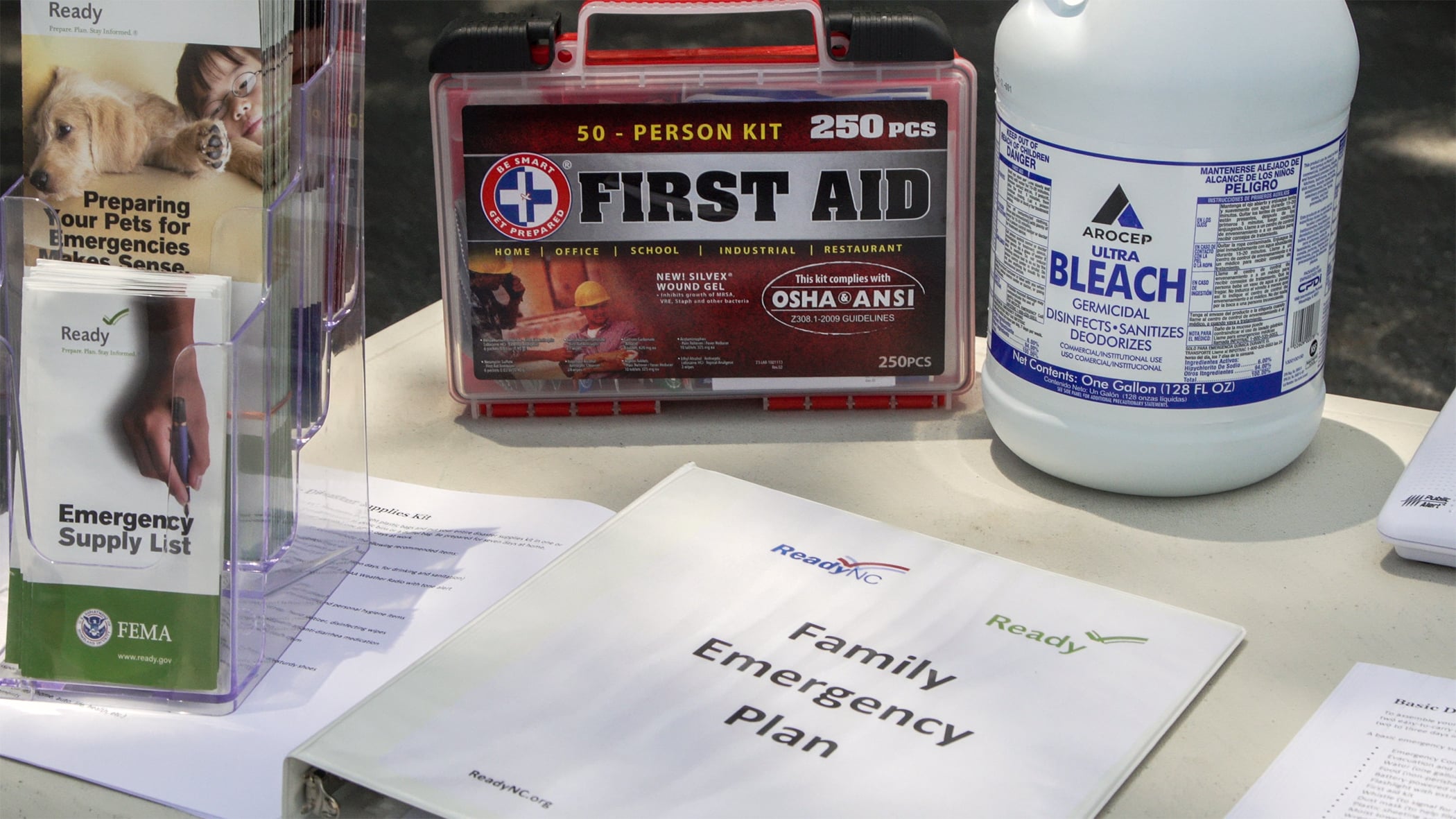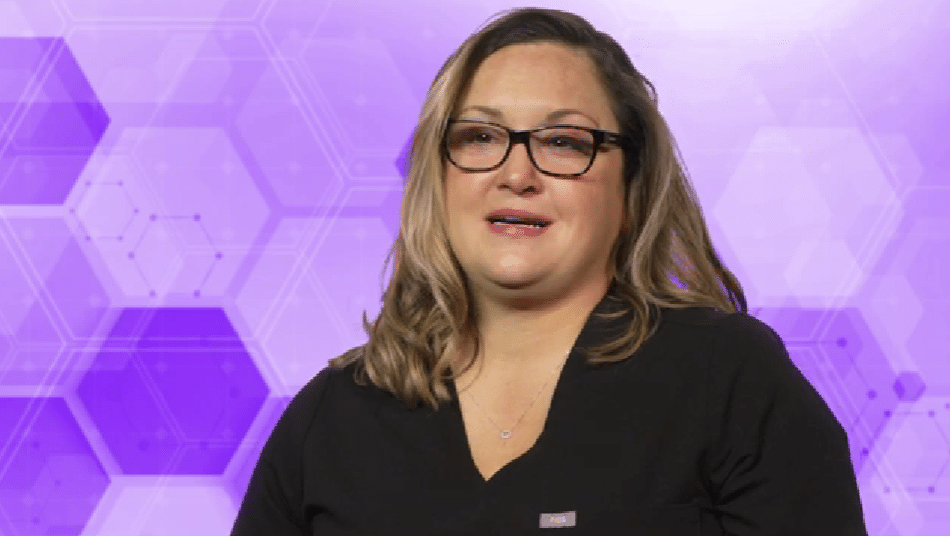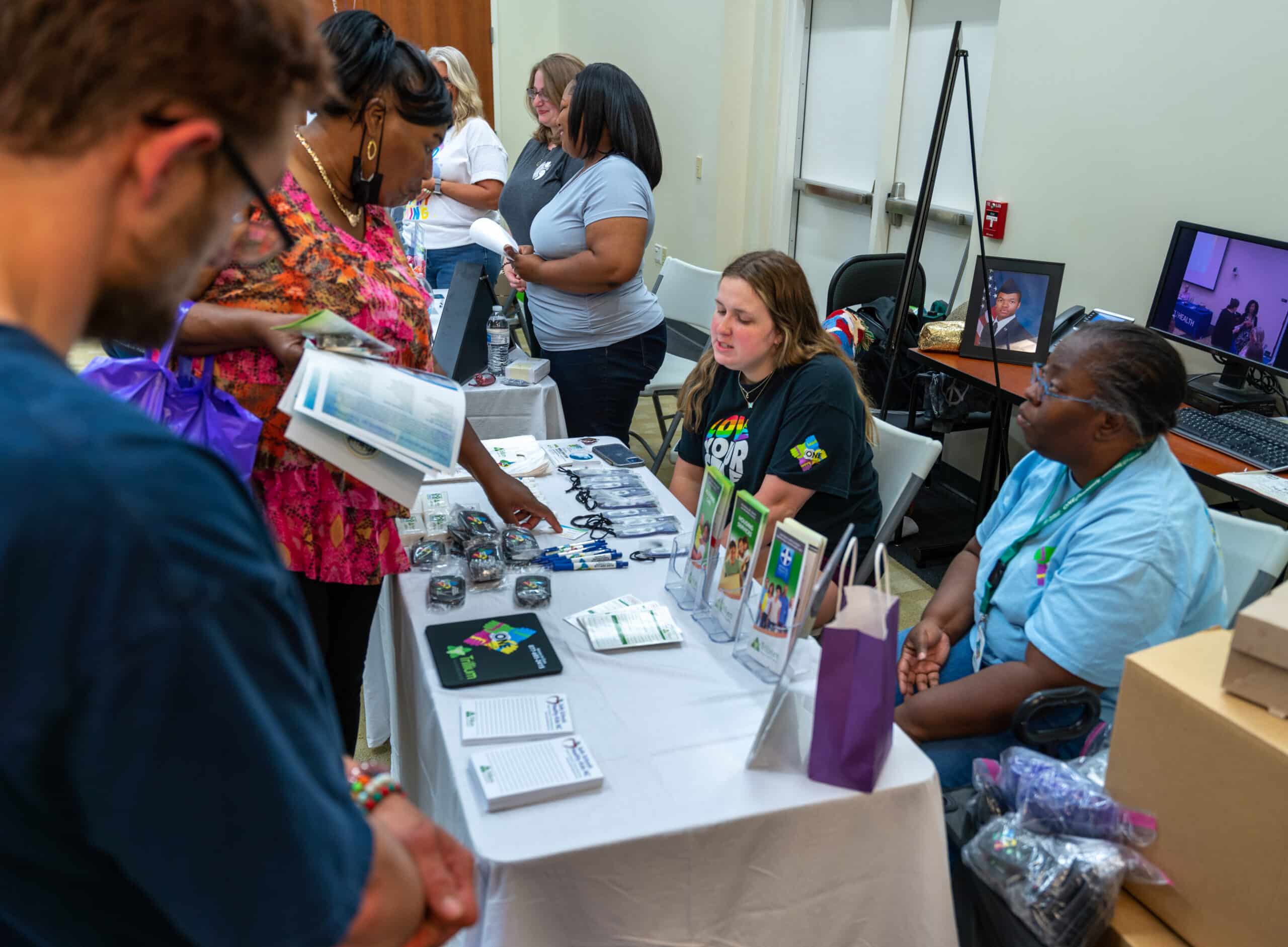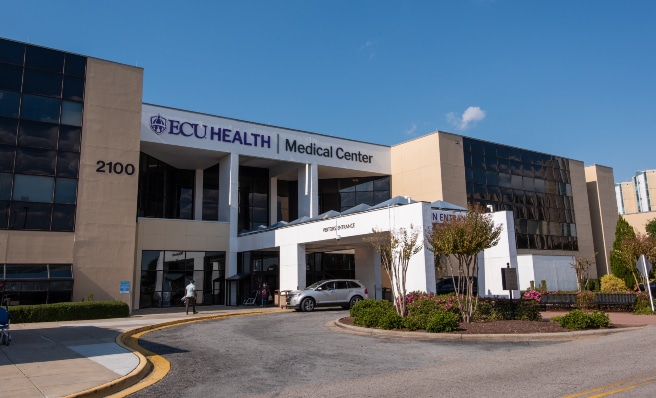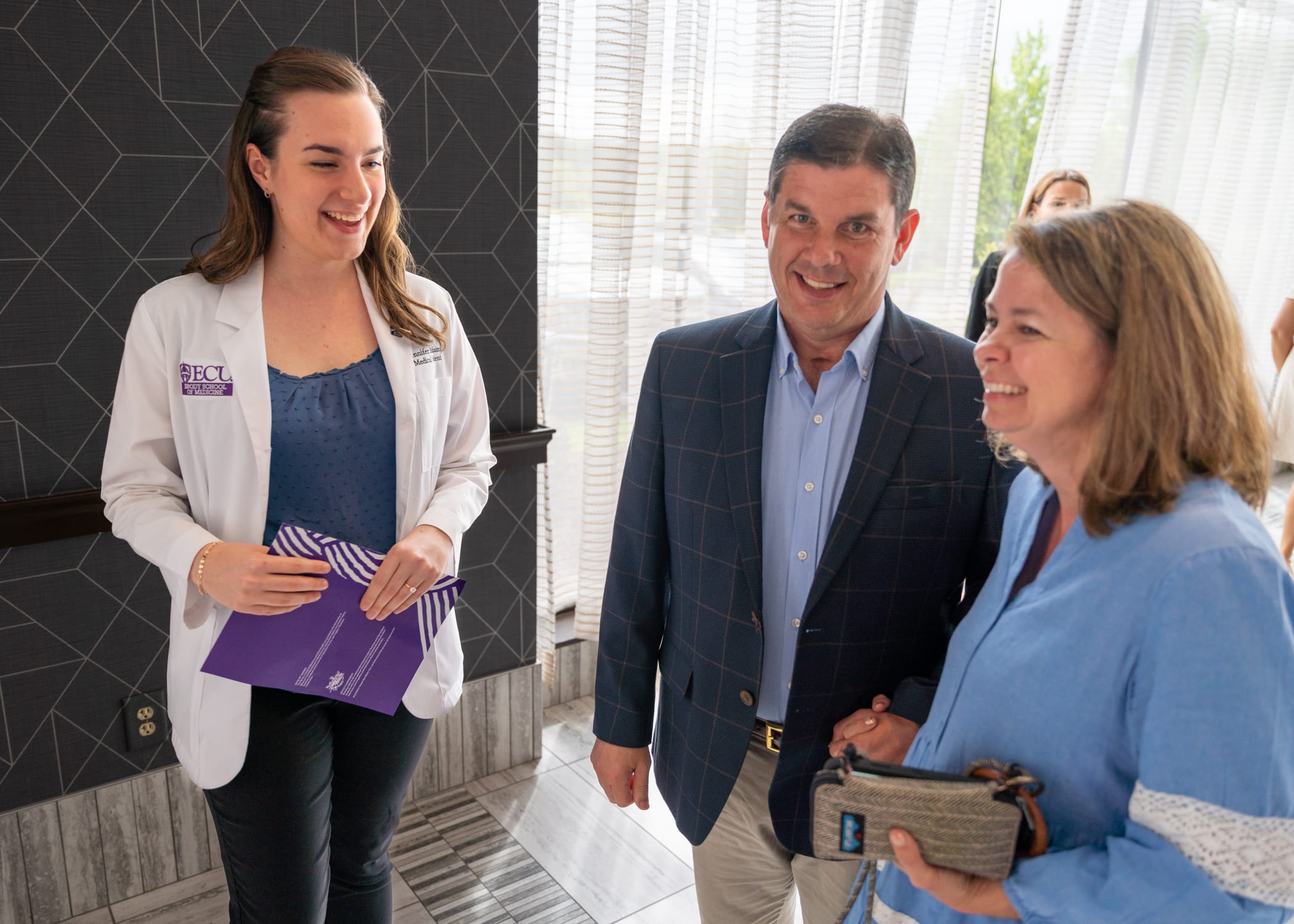Hurricane season is underway in the Atlantic and according to the Eastern Healthcare Preparedness Coalition (EHPC), it’s expected to be an active season.
The EHPC team said that while hurricanes are difficult to predict, we can all do our part to prepare for the best possible outcomes. That includes preparing yourself, your family and your home for potential storms.
“If something goes off unexpectedly and you’re unable to leave your house potentially due to flooding, do you feel like you could provide for yourself and your family, including your pets, for about 72 hours?” Stephanie Seals, disaster services specialist with EHPC, asked. “Historically, we know the rescue services aren’t able to help for about the first 72 hours, so we always recommend having enough food, water and medications at your home to take care of yourself, your family and your pets for that time.”
Other key items to keep in mind for your preparedness kits include important phone numbers, documents like birth certificates, marriage certificates and wills, and a first aid kit.
“You don’t necessarily have to go out and buy a brand new first aid kit, you can kind of buy your equipment and piecemeal it together yourself, but it’s important to make sure it’s stocked,” Seals said. “The big things that we see needed after these storms are things such as band aids, ace bandages and gauze to wrap up injuries and your basic antiseptic ointment to clean off those wounds.”
Ready.gov is a federal government website with helpful information about how to properly prepare for a hurricane. This includes guidance on Creating a plan that meets the specific needs of your household and building an emergency kit that contains supplies to help you stay adequately prepared for a natural disaster like a hurricane.
The EHPC team is ECU Health-based while proudly serving all of eastern North Carolina, which enables Seals to pursue her passions on both the personal and professional fronts.
“Getting to help people when they need it the most is incredibly important to me. I think helping people help themselves is one of the coolest things we get to do, too,” Seals said. “We have heard back from people that we get to train and educate and they’ll say, ‘When this happened unexpectedly, we had a house fire or another situation, I was ready because of the things that we put together.’ That just means the world to me.”
Resources
Hurricanes can form quickly. Take the time now, before a hurricane impacts our region, to educate yourself on how to prepare and respond. Below are helpful links for federal and state websites:
“I was really apprehensive about it because I’ve always been at one little hospital,” said Suzanne Foster, a travel nurse with ECU Health, “so it was a little intimidating coming to a larger hospital.”
Suzanne Foster isn’t the only nurse who found herself looking for new and different opportunities in the wake of the COVID-19 pandemic.
“I wanted to try travel, nursing and experience other facilities,” said Foster, “but I have a husband and a son that I dearly love and do not want to be away from. The fact that I can drive home at night is huge.”
She can do both thanks to the ECU Health Travel Staffing program. It’s an innovative approach to recruiting driven by the ever-changing health care industry and the need to meet nurses where they are.
“For an organization of our size to develop its own staffing agency is significant in the innovation of nursing care and staffing hospitals,” said Dennis Campbell, ECU Health Beaufort Hospital, a campus of ECU Health Medical Center interim president. “It’s no secret that there is a nationwide shortage of staff nurses and nurses are more mobile today than they have ever been.”
“I was getting a little bit burnt out in my current role, which frankly after COVID, I think a lot of us needed just a change of scenery,” Foster said.
“The travel staffing program mimics any other staffing agency. The difference is it’s ours,” said Campbell.
Since the start of the program, the system has hired more than 500 clinical team members. Of those, 89% have opted to extend their assignments.
“The team, everybody that you encounter is extremely considerate and thankful to have you on board,” Foster said. “Working at ECU Health has been wonderful.”
To learn more about the ECU Health Travel Staffing Program visit: https://careers.ecuhealth.org/pages/vidant-health-travel-staffing-program.
ECU Health, local organizations, non-profits and other behavioral health and substance use groups came together on May 23 to host the 11th annual Mental Health Expo, which was in person for the first time since 2019.
Nearly 50 exhibitors saw groups and individuals come through as they answered questions and provided information about local mental health and substance use resources.
Glenn Simpson, ECU Health system service line administrator for Behavioral Health, said the opportunity to come back together in person was crucial for the event to connect with community members face-to-face.
“Most of us become accustomed to Zoom meetings and masking and not having that interpersonal relationship. As humans, interpersonal relationships are extremely important,” Simpson said. “Technology helped us with this event the last couple years but to be able to actually see people shake people’s hands, talk to them directly is really exciting.”
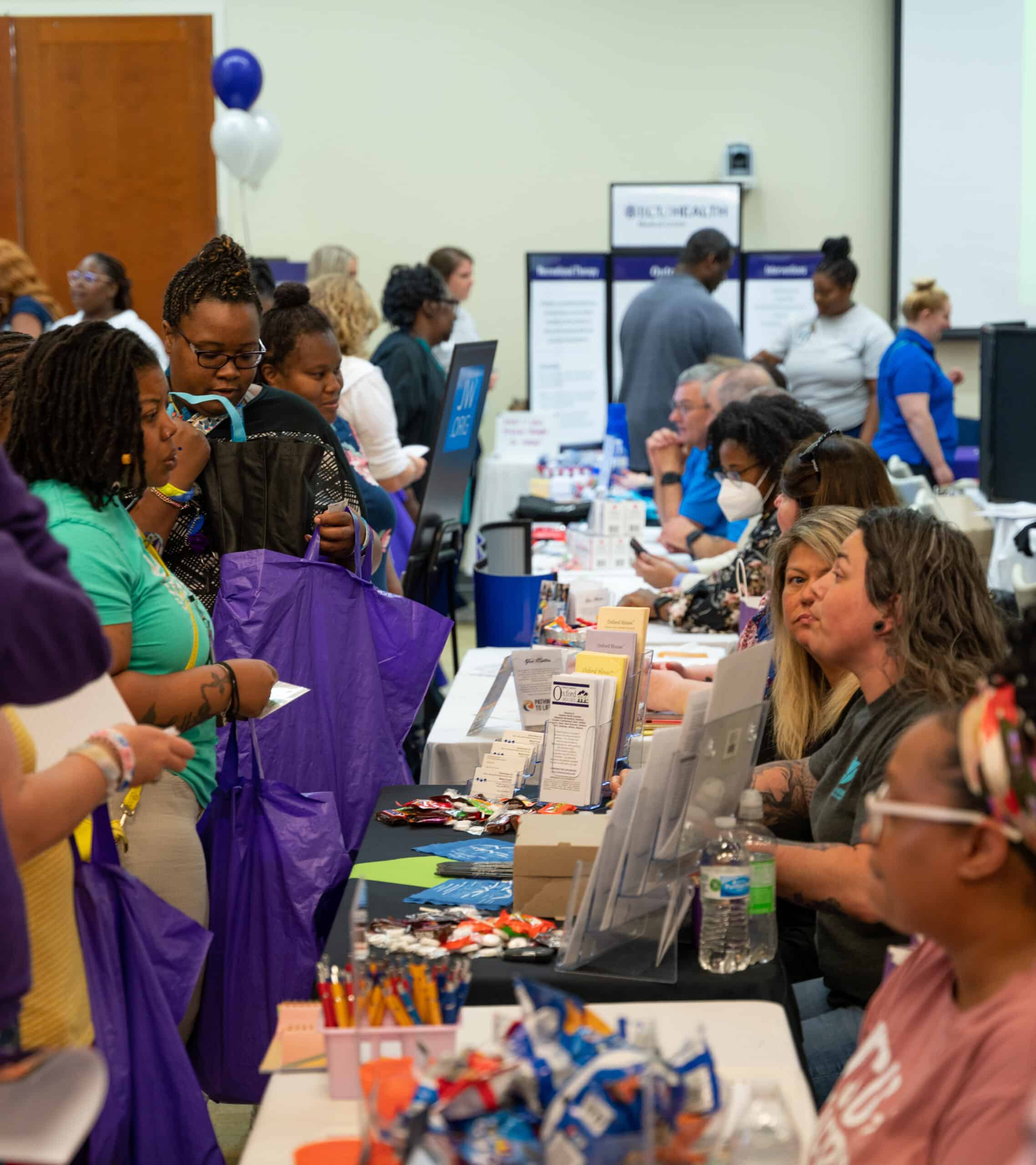
The event also included speakers presenting on a few different topics, including: “Mind Over Matter: Using Mindfulness to Assist with Treatment of Depression and Anxiety,” “Lay Responder Naloxone Training: When and How to use NARCAN Nasal Spray” and “Human Trafficking: Building Protective Factors for Prevention and Resiliency.”
Simpson said these “mini workshops” were helpful to give community members more information on topics that may be important to them.
Simpson also shared that this event would not be possible without the support of the community and the many organizations that came together to share information with eastern North Carolinians.
“There is help out there, you just kind of have to figure out how to get it,” Simpson said. “This event brings the exhibitors, agencies and the public together to share all of this information. I’ve already talked to a few people and realized I didn’t even know the agency existed and I’ve been doing this for a long time. It’s a real cool opportunity to learn what’s out there and I know the communities we collectively serve really benefit from that.”
The Walter B. Jones Center, located in Greenville, was one of nearly 50 exhibitors on hand for the Mental Health Expo. Team members from the center said the partnership with ECU Health is crucial and the opportunity to connect with community members in person is invaluable.
“It’s great to get the word out and to let people know what we do and let folks know how to get into treatment and get help when they need it,” Jade Butler, counseling supervisor at Walter B. Jones Center, said. “I think we have the same vision and goal in mind as ECU Health, to help as many people as we can with mental health and substance use issues. Having ECU Health Medical Center right here and us just down the road, I think we’re able to collaborate and be able to serve as many people as we can.”
Simpson said the event was also a great opportunity to help promote the 988 Suicide & Crisis Lifeline as well, which offers 24/7 access to trained crisis counselors who can help people experiencing mental health-related distress.
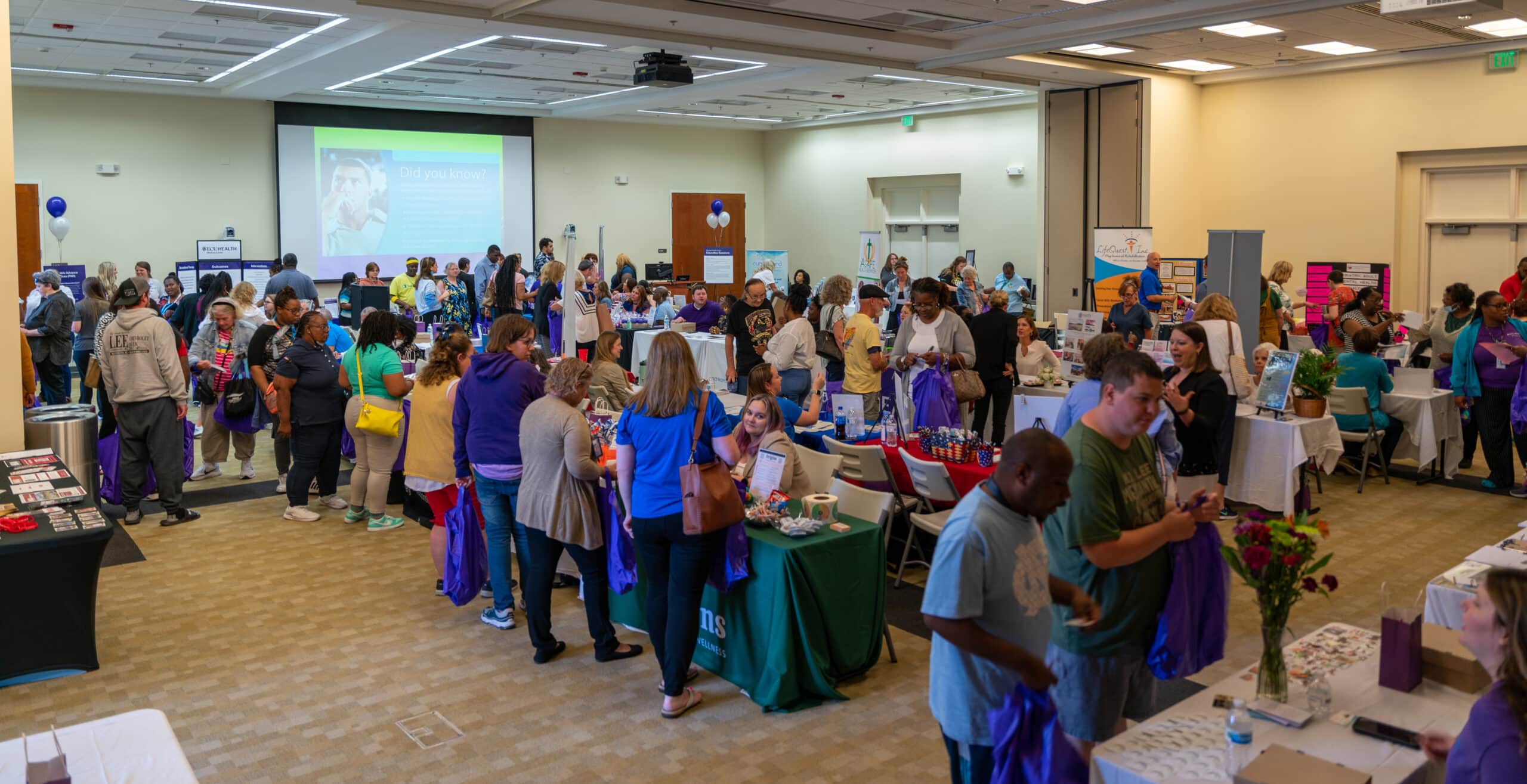
The lifeline is available nationwide and connects callers with a trained professional in the state from which they are calling. North Carolina residents contacting the 988 services are connected to a team in Greenville. The lifeline offers free and confidential support and can also help callers connect with nearby services.
Access to care was a frequent topic during the Mental Health Expo and Simpson shared that Medicaid expansion is an exciting development for those seeking behavioral health care. He added that the upcoming behavioral health hospital, slated to open in Greenville in spring 2025, is a major step in improving access for eastern North Carolina.
“We’re very excited to partner with Acadia,” Simpson said. “It’s going to be a state-of-the-art behavioral health hospital that will serve all ages. That’s all on top of what we’re already able to do today so it will be from children to senior citizens that need that level of care.”
ECU Health team members were on hand to share information on family services and important topics, like setting up a Psychiatric Advance Directive. The ECU Health team also shared information on MyChart and ECU HealthNow.
When Lauren Moore, a fourth-year student at the Brody School of Medicine at East Carolina University, begins her residency training at ECU Health Medical Center in July it will mark the beginning of a new chapter in her deeply personal family medicine journey. With a love for health care passed down from her parents, including her late mother, Moore’s next step is another toward her ultimate goal: making a difference in the lives of countless eastern North Carolina community members.
Moore’s experience with health care goes far beyond her medical school training. Her father is a physician’s assistant and she was naturally drawn to the connections he made in the community. Growing up in Farmville and attending school in Greenville, she recalls countless instances where he was stopped in places like the grocery store, catching up with a long-time patient or offering helpful advice.
“Growing up, people would come up to us and be like, ‘Mr. Eddie, how are you doing?’ I’d ask, ‘Dad, who is that?’ He’d say, ‘Oh, a patient that I’ve had for ten years now.’ I would think, ‘That is amazing,’” Moore said. “And even recently, ever since I’ve matched at ECU Health, just within the past few weeks, I’ve had several people from my Bible study at my church that have said, ‘You know, I’ve been needing to get a primary care doctor.’ And I’m like, ‘I’m your person!’ It just feels good that they trust me enough to one day be their doctor and to have those personal connections and be able to serve them to make sure their health is taken care of.”
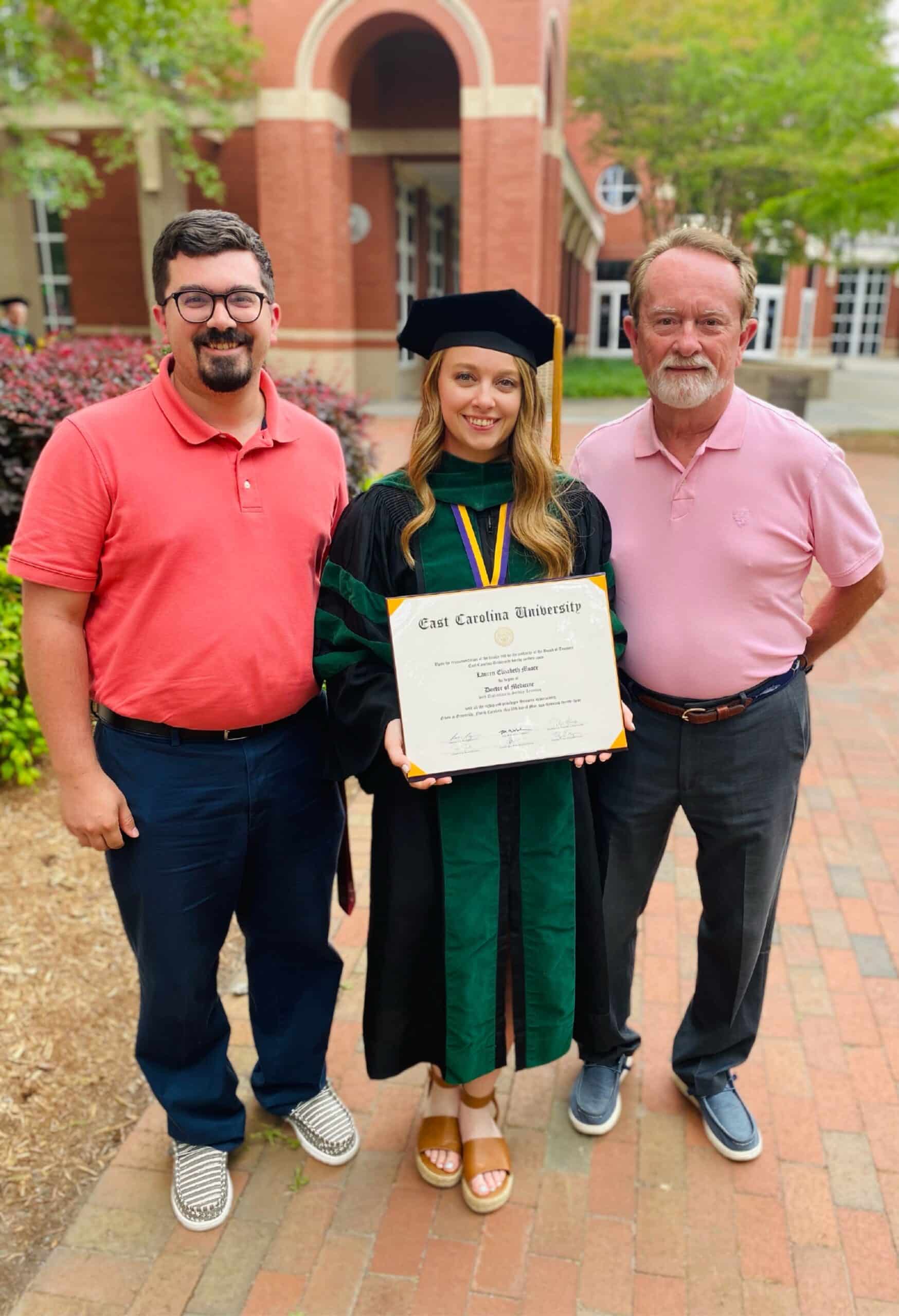
She also experienced the health care profession from the patient perspective through her mother’s cancer journey. When Moore was seven years old, her mother was diagnosed with breast cancer for the first time and was declared cancer free after about a year of treatment.
Then, six years later, she was re-diagnosed with metastatic breast cancer, which spread to her liver and brain. Moore’s mother passed in June of 2010. She reflected on the care her mom received and how the care teams went above and beyond for patients and families alike. Moore learned what it meant to be a compassionate care giver and she said she’s prepared to bring that same compassion to her future patients.
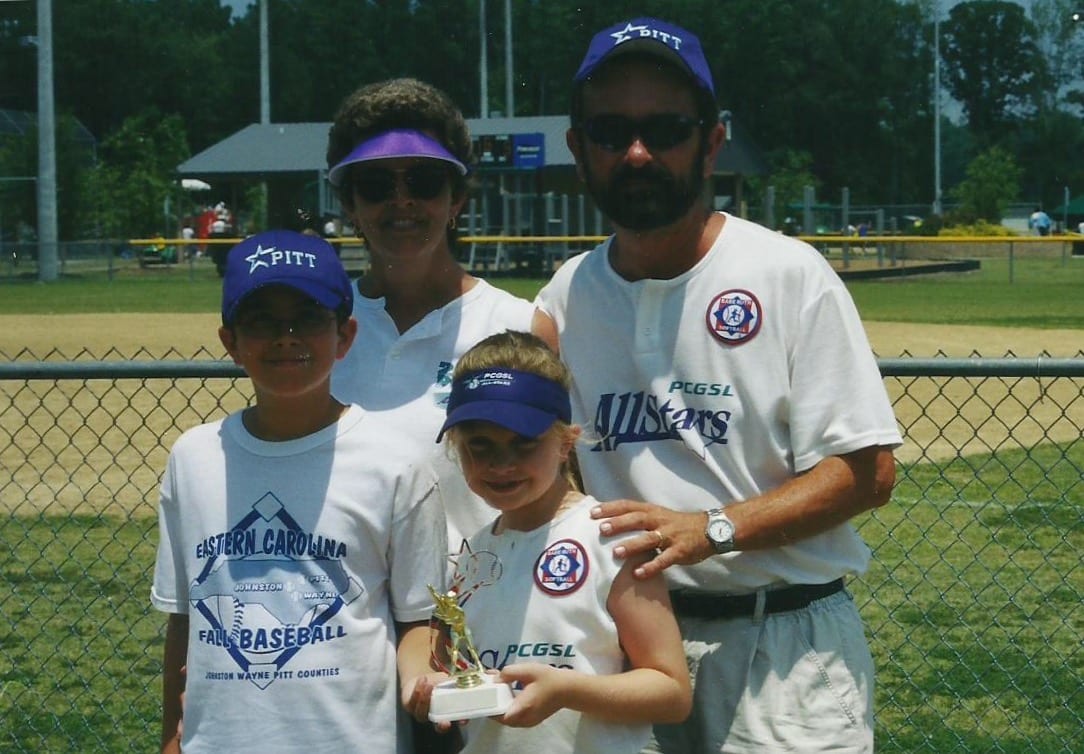
“Seeing her go through that and seeing the way that her physicians were able to play such a vital role in not only her life, but also my family’s life and making sure that we were OK even after the fact,” Moore said. “If my dad was walking through the hospital, my mom’s physicians would check in on him and ask how he was doing and if he needed anything. So it wasn’t that they were just taking care of my mom as a patient, but they were also taking care of the rest of her life, too. That had such a tremendous impact on me. My goal is not only to care for my patients the same way my dad does, but also to make the families feel the same way that those physicians made me feel.”
Brody Matches
Moore is one of 77 Brody medical students poised to begin their residency at hospitals across the country, following an emotional Match Day ceremony in March and commencement in May. For Moore, who wants to practice family medicine in the region in which she grew up, matching to ECU Health Medical Center was always the goal.
“Being a medical student at Brody and seeing the patient population that we have here, I think that’s really what drew me to ECU Health,” said Moore. “The fact that it serves patients throughout the 29 counties in eastern North Carolina who otherwise wouldn’t have a primary care provider or a Level I trauma center if it wasn’t for us. I was drawn to the educational opportunities given the uniqueness of our patients and everybody in the residency program is just so welcoming and nice. I know it’s family medicine, but it is also like a family there.”

Photo Courtesy of ECU News Services
Match Day at Brody marked a milestone for the Class of 2023, whose medical school journey included the historic events of learning through the COVID-19 pandemic and the integration of Brody and then-Vidant Health, which became ECU Health in 2022.
Match Day is arguably the pinnacle of medical school, when students discover where they will train during their residency, surrounded by friends, family and Brody faculty and staff who have guided them over the years.
The Class of 2023 is a snapshot of Brody’s mission to serve the state. The 77 members of the graduating class represent more than 25 North Carolina counties, from Buncombe in the west to Pasquotank in the northeast.
ECU Health Medical Center had an excellent Match Day, according to Dr. Herb Garrison, associate dean for Graduate Medical Education, with 98 medical students matching into the 12 main residency programs. Twenty-six of the students, or 27%, will graduate from North Carolina medical schools, including 16 students from ECU’s Brody School of Medicine. Brody’s most recent class features the most medical students who will begin their residency at ECU Health Medical Center in July.
“We’re thrilled for this class to start their residencies across the country and we’re especially excited about how many will be staying with us at ECU Health Medical Center,” Dr. Garrison said. “This group had their first year of medical school disrupted by the start of COVID and I’m so proud of the way they supported each other through that experience. I’m just excited, as I am every year, to see these skilled and highly trained students start their careers and share everything they’ve learned here with the rest of the world.”
A Rural Legacy
Dr. Mott Blair’s journey to his post as a physician at ECU Health Family Medicine – Wallace is not totally unlike Moore’s. Dr. Blair’s father was a doctor in Duplin County beginning in 1949.
Dr. Blair shared that his father was a primary care physician who also took up obstetrics and did home deliveries for many families. Seeing his father’s connection with patients and families in his home town lead him directly to his own career in medicine.
He attended the Brody School of Medicine – then called ECU School of Medicine – and graduated in 1987, alongside his brother. He matched with ECU Health Medical Center – then called Pitt County Memorial Hospital – and began practicing in Wallace after his three-year residency. He said his decisions to attend Brody, make Greenville his first choice for residency, establish a practice in his rural hometown and eventually partner with the ECU Health system have all been rewarding for himself and beneficial for the patients he serves.
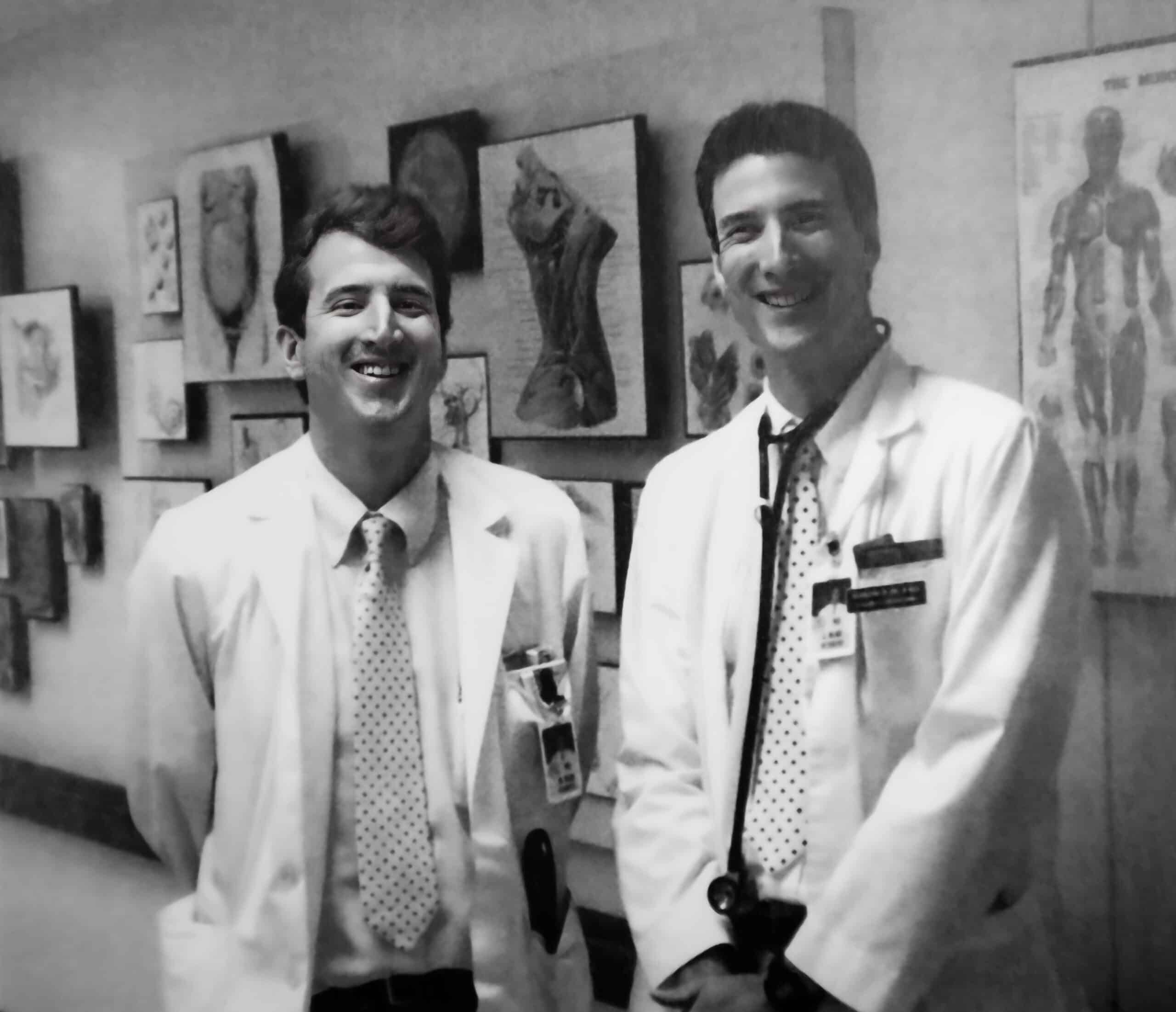
“I feel like the mission of the medical school was a mission that I wanted to take on and I think I’ve been successful in doing that,” Dr. Blair said. “I think the credit in being able to do that goes to the medical school and now the medical center as well. I really think that what we’re doing now, particularly as we support practices across the eastern region of the state, is a crucial thing to put in place, because health care in rural North Carolina is so difficult and we need to have true rural primary care.”
Dr. Blair said that he knows his time at Brody prepared him well for the challenges of residency and he has seen the same for other Brody graduates whom he’s connected with as residents.
For first year residents, he said it’s a new kind of challenge and learning curve, just like those experienced in the first year of medical school and the first year of rotations, but sticking to the same habits that got residents where they are will make all the difference.
“Work hard, study hard. Getting through residency the first year is a lot of hard work,” Dr. Blair said. “So enjoy it and it will go by fast and it will seem like a distant memory pretty quickly. Coming out of Brody, you’ll be well prepared. I found the preparation for me was excellent. You have to be patient with the pace in medicine. It changes rapidly and has really changed a lot since I’ve been in practice and continues to do so.”
In line with the Brody School of Medicine’s mission to increase the number of primary care physicians who serve North Carolina, 52% of the 2023 Brody class matched into primary care residencies — including obstetrics and gynecology — and 44% matched to residency programs in North Carolina.
Moore and Dr. Blair are just two examples of the importance of the Brody School of Medicine and ECU Health connection. Developing high-quality, compassionate physicians for a region in need helps meet the organizations’ combined mission to improve the health and well-being of eastern North Carolina.
“Developing great primary care providers for rural areas is at the core of what we do at Brody and within ECU Health” said Dr. Michael Waldrum, CEO of ECU Health and dean of Brody. “Working as rural health care professionals is hard but we’re working together to train doctors that will care for the whole patient, their physical and emotional health, and I think we’ve been successful in doing that. We have students, professors, residents and doctors that really understand that side of health care and their work in that space leaves a legacy that we can all be proud of.”
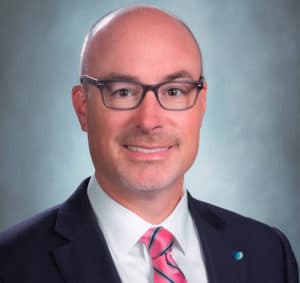
Brian Floyd
ECU Health Chief Operating Officer and ECU Health Medical Center President Brian Floyd joined other rural health care leaders from across the state for a virtual town hall hosted by the North Carolina Healthcare Association on Tuesday, April 11.
During “Reimagining Rural Health in North Carolina,” Floyd and the 4 other panelists – Jessie Tucker, president and CEO at UNC Health Wayne, Kathy Bailey, president and CEO at UNC Health Blue Ridge, Lynda Stanley, President and CEO at Dosher Memorial Hospital, and Michelle Fortune, CEO at St. Luke’s Hospital – discussed how they are evolving the future of rural health care in the state.
Like many rural regions, 1.4 million people who call eastern North Carolina home face a number of systemic socioeconomic challenges, which have negative impacts on health outcomes. The panelists discussed the unique challenges rural health care faces, how Medicaid expansion will impact rural health care and communities, workforce development, community partnerships and outreach and innovations. Partnerships and collaboration were a key topic and many rural health systems across the state, including ECU Health, continue to identify solutions to improve access to care in rural communities.
“I was honored to discuss rural health care challenges, successes and innovations alongside fellow rural health leaders across North Carolina at today’s town hall,” said Floyd. “ECU Health and the Brody School of Medicine at East Carolina University are uniquely positioned to help train the next generation of physicians and health care workers. Together, we can address the issues that rural communities face like a lack of access to health care resources and disproportionate chronic illness. From community education, to partnerships that make every social system more vital, to caring for people at their worst and sometimes best day, the work we get to do is so fulfilling.”
Patient-centered care is a term often used in health care to describe a collaborative relationship between care teams, patients and families. It is the goal of many health care providers, the type of relationship that occurs only when trust is fully developed.
For medical students learning the trade, there are right and wrong answers to most of the questions they encounter. These symptoms match that disorder, or this medication cannot be given to that type of patient. While there is much to learn about the science of medicine from the pages of a textbook or within the walls of the classroom, it is hard to replicate the hands-on experience gained during direct patient care. Often times, the best lessons come from long days and nights spent compassionately caring for patients, listening to feedback, patiently answering questions and validating the feelings of those they care for.
“It’s one of those things that you’re taught in medical school to listen to patients and their families because it really is shared decision making,” said third-year Brody School of Medicine at East Carolina University student Jennifer McMains. “But then when you get in the moment, there’s so much going on and it’s very easy to think that you know medically what’s best. But that’s not the way we practice medicine. If the family feels strongly, then listen because they’re with their loved one every single day, every minute.”
McMains learned firsthand the importance of patient-centered care when she met Carnie and Melody Hedgepeth in June 2022 during one of the most difficult periods of their lives.
Carnie, who serves as the director of emergency services for Beaufort County and as a pastor at Arthur Christian Church, was out for a summer ride on his motorcycle when he was involved in a serious accident. He was hit by an oncoming driver and thrown from his bike, eventually landing on the roof of the car. Despite wearing a helmet, the accident left him with multiple facial injuries and a brain bleed that resulted in a traumatic brain injury. With Melody by his side, Carnie spent more than a month in ECU Health Medical Center where they quickly found an expansive support system.
“A lot of people in the (emergency room) know him and people surrounded us with love and prayers,” said Melody. “We got through that first night thanks to everyone in the ER.”
It was in the ER during her surgery rotation where McMains would first meet the Hedgepeths.
“We would go in as a team of doctors to check and provide updates on the plan,” McMains recalled. “Melody was constantly asking ‘Can we be doing anything more?’ or ‘Are there better ways for us to position his feet?’ Things like that seem small but she was always looking at the six-months, one-year outcome and always believing that he would recover. That showed me a lot because I would go into the next person’s room and there wouldn’t be a person to advocate.”
For the Hedgepeths, the attention and care they received left a lasting impression.
“From my standpoint, that’s the most important thing, knowing that the person who is calling the shots cares,” said Carnie. “It means so much when you know that the person cares.”
Carnie, Melody and McMains were reunited April 6 at the Hilton in Greenville during the Legacy Teachers Celebration, a tradition presented by Brody and ECU Health that gives students a chance to honor a patient they met during third-year rotations who taught lessons about care, compassion and communication they will take with them into their careers as physicians.

In total, 20 third-year medical students shared their stories at the luncheon, which featured gift baskets, a photo station and remarks from ECU Health and Brody leaders. At the end, legacy teachers placed custom pins on the students’ white coats to commemorate the significance of the occasion and serve as a reminder of the lessons learned – lessons that they will carry with them through their medical careers.
“As physicians, these stories fuel our hearts and purpose for servant leadership in our pursuit of medicine,” said Dr. Christina Bowen, ECU Health chief well-being officer. “The connections we make with patients help us learn the art of practicing medicine. We’re here to honor these sacred relationships and celebrate our legacy teachers.”
Third-year Brody student Karen Semaan shared her experience with former patient Aidan Mummert and his grandparents. Semaan got to know them well while on the pediatric hematology-oncology rotation. At first, the care team was unsure of the cause of Mummert’s illness. They visited Mummert and his family often to ask more questions and run more tests. Despite the uncertainty, the family and care team developed a light-hearted and fun relationship. When doctors finally determined the cause of the infection, the care team celebrated with joy alongside the family during Mummert’s discharge.
Semaan said the relationship she developed with Mummert and his family was a reminder of her “why” as a future physician.
“Talking with Aidan and his grandmother reminded me, even though medicine and medical school is hard, even though you’re tired and your emotional reserves are low, you can get energy from people,” Semaan said. “You can get love and compassion from them that you can then give back and share with other patients that you see that day.”
The Legacy Teachers Celebration is an important partnership between ECU Health and Brody. The education that medical students receive at Brody, combined with the experiences gained within the ECU Health clinical setting, provides a full spectrum of knowledge that prepares them to deliver compassionate care to the patients they will serve.
“Today is one of the greatest days because we get to celebrate the relationship between our student doctors and their patients,” said Dr. Amanda Higginson, associate dean for student affairs at Brody. “Together, Brody and ECU Health have a shared responsibility to provide both healing and learning. Our legacy teachers help us do that in ways that go beyond just the classroom setting.”
Dr. David Eldridge, senior associate dean for academic affairs at Brody and Brian Floyd, chief operating office at ECU Health and president of ECU Health Medical Center, provided remarks at the event. Like the students, they shared their deeply personal stories of important lessons they learned as students. The speakers shared common themes, especially around the importance of positive, trusting relationships between patients and care teams.
“All across health care, and especially here at ECU Health, there incredible people gathered around others who are in-need of care,” said Floyd. “We’ve chosen this work because it is so meaningful. We are able to make a difference in the lives of so many because of the beautiful relationship between these students and these patients. Today is a reminder of why we do what we do.”
On Wednesday, ECU Health Medical Center partnered with Honorbridge to celebrate National Donate Life Month and recognize organ and tissue donors, their families, those who are waiting for life-saving and life-changing donations, and recipients of organ and tissue donations.
The occasion was marked at 10:08 a.m. as the Donate Life flag was raised in front of ECU Health Medical Center, followed by a 30-second moment of silence. These two numbers are significant as the time symbolizes that one donor can save eight lives while the moment of silence recognizes the 3,000 North Carolinians waiting for an organ donation.
Dr. Walter Pofahl, chief medical officer for ECU Health Medical Center, said eastern North Carolina is home to a disproportionately high number of those 3,000 in North Carolina. Dr. Pofahl shared that last year ECU Health Medical Center had 31 organ donors, transplanted 90 organs while 18 were sent out for research. It also had 56 tissue donors with 141 tissues recovered and 90 eye donors with 84 corneas transplanted and 21 placed for research.
A daughter’s gift
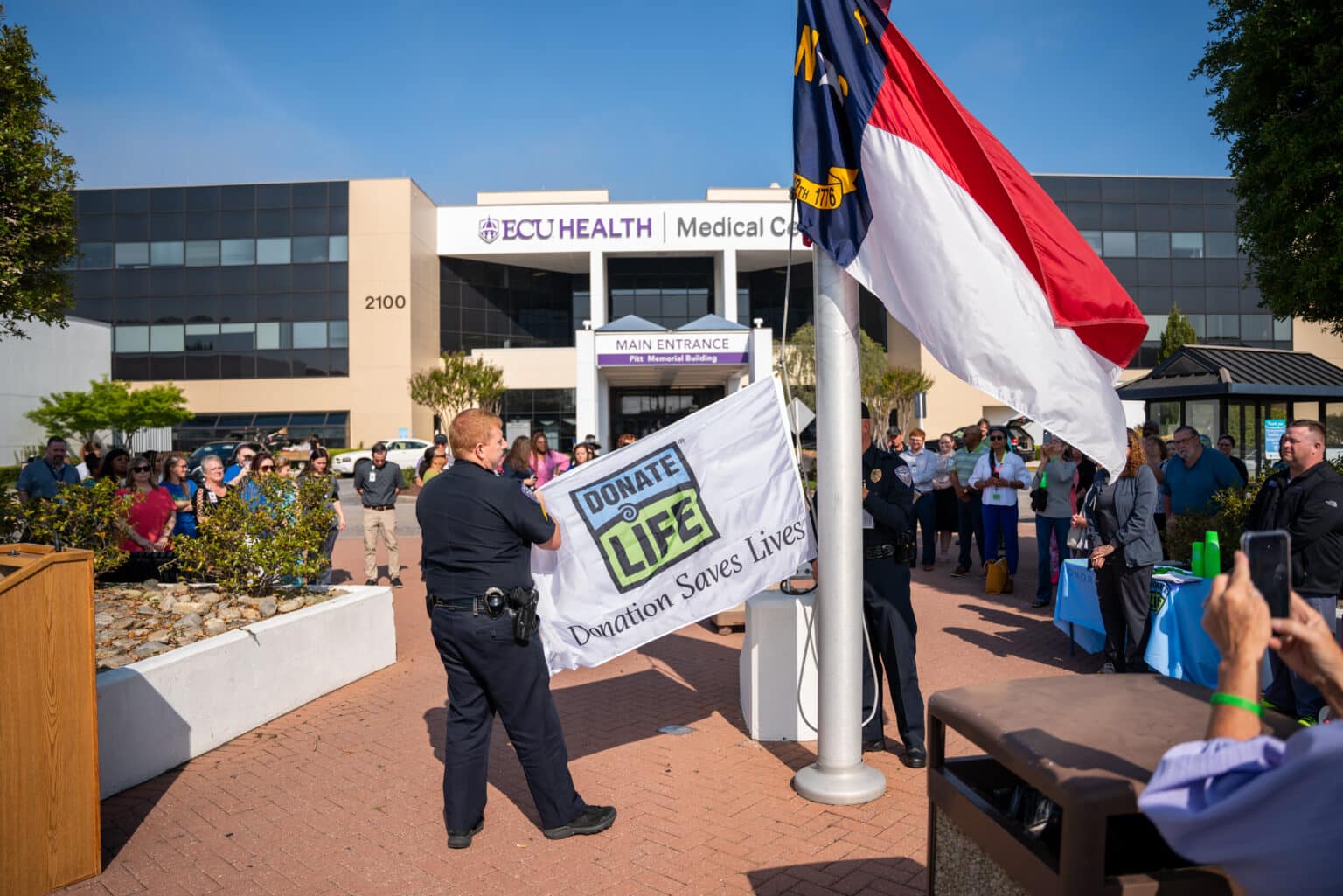
During Wednesday’s event, Darice Fonville shared her inspiring story of donating her kidney to her mother in February.
Fonville said her mother had suffered from chronic kidney disease for about 20 years and as she began to struggle more, they learned she would need to find a donor or start dialysis. She knew that dialysis can be very difficult for patients, and she wanted to help her mother any way she could. So Darice decided to get tested to see if she would be a match.
“I was actually at work when I got the call, and they let me know we were a match,” Fonville said. “As soon as I got that call, everybody in the office already knew how excited I was. I put work on pause to go call my mom. She already knew, and she was nervous. I was excited. I knew it was a done deal. We were just going to go through with it.”
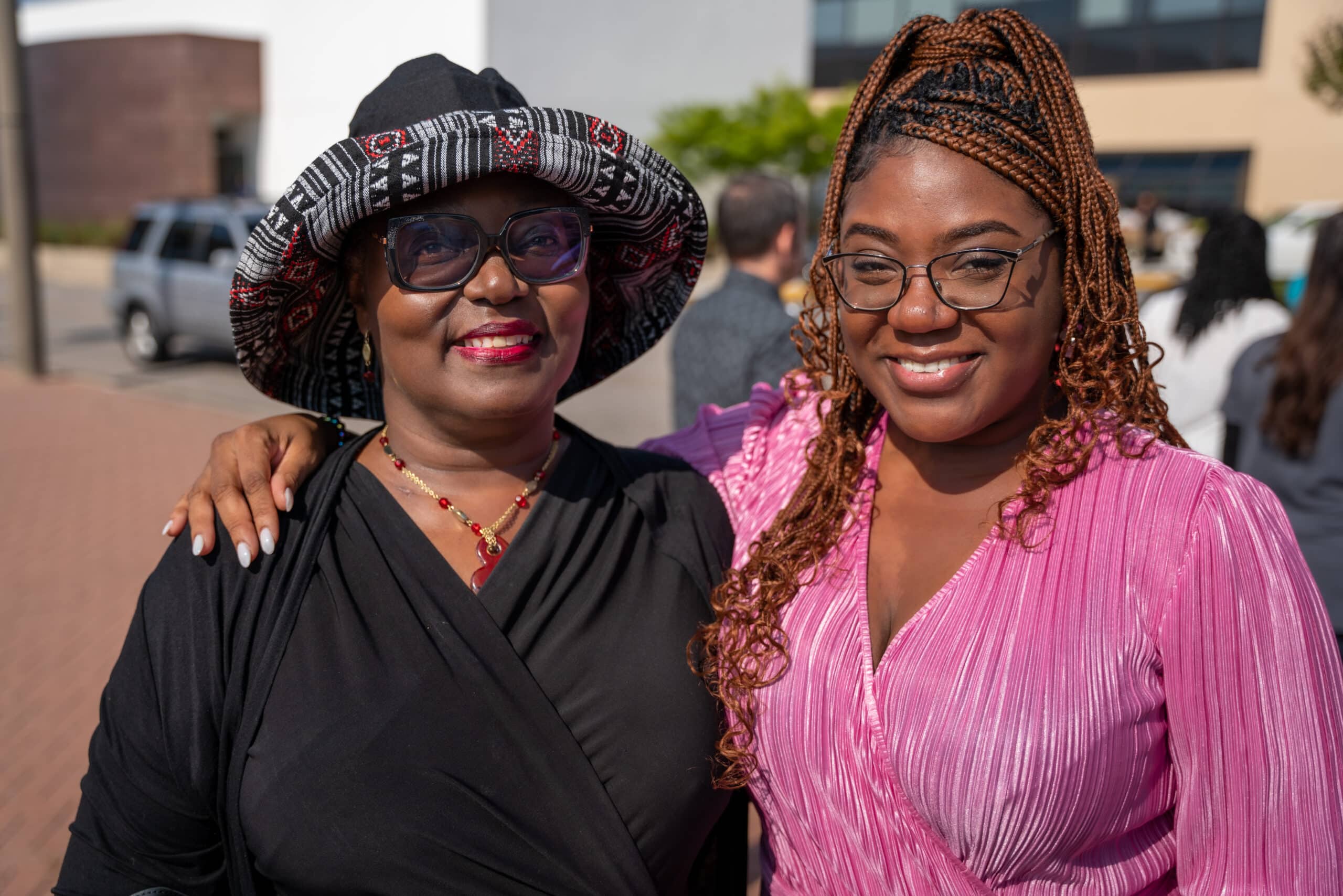
She said she never had any hesitation when she knew she could give something back to her mother and improve her life. She said the transplant team at ECU Health Medical Center put everyone at ease and allowed Fonville and her mother to be together shortly before surgery to spend time with one another.
How to give
Dr. Pofahl said while it is important to identify as an organ donor when you receive your driver’s license or state identification card, it’s just as important to share your wishes with those close to you.
“It’s not always easy, but having that discussion is important,” Dr. Pofahl said. “In that critical time when decisions are being made around donation, if your loved ones understand what your wishes are upfront and ahead of time, that makes the process a lot easier.”
While only about 50 percent of adults in North Carolina are registered organ donors, there are 3,000 people waiting for organ and tissue donations in North Carolina and more than 100,000 waiting for a donation across the country.
Learn more about how to become an organ donor and the impact you can make as a donor on Donate Life’s website.
Resources
Survivors of stroke and brain injury had an opportunity to artistically express their journey during a recent Unmasking Brain Injury event at ECU Health Medical Center.
The Brain Injury Association of North Carolina sponsored the Unmasking Brain Injury workshop. This event provides blank face masks and supplies to decorate the masks. Unmasking Brain Injury is an organization that aims to bring awareness to the prevalence of brain injuries and give survivors a voice and the means to educate others of what it’s like to live and recover with a brain injury. The event was the first of its kind in the ECU Health system.
Michele Horvath, stroke navigator at ECU Health Medical Center, helped run the event and said it was a wonderful moment to share with survivors.
“Everybody was really engaged and it was an emotional time for survivors because it made them artistically express their stroke or their traumatic brain injury and some of them are still in recovery,” Horvath said. “They’re really excited to share their story and it was really heartfelt. We’re hoping to bring community awareness to some of these brain injuries.”
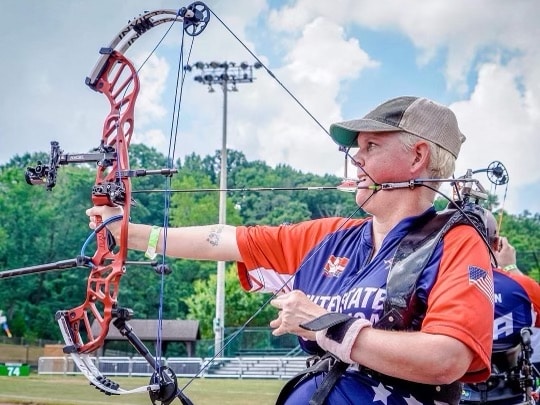
Along with a support person, each attendee, many of them members of ECU Health’s Stroke Support Network, decorated a mask to represent their journey and recovery process from their stroke or brain injury.
Molly Twiss, marketing coordinator at the Brain Injury Association of North Carolina, said it was the first Unmasking Brain Injury event she’d helped coordinate and she felt inspired after the event. She explained that the masks could be anything attendees wanted, not just their brain injury or stroke, but about themselves as a whole.
“The masks are a look inside of them, what they’re feeling, what they’ve gone through, what they hope for the future,” Twiss said. “Some can be as small as their favorite TV show, their favorite color or something about what their life was like before their injury. So if they were a skier beforehand and their accident was a ski accident, they can have it ski related. The mask could represent just something to get their mind off of having this invisible injury.”
Discovering New Passions
Wendy Gardner had her first child in 2000. Ten days after her son was born in Wilson, she suffered a hemorrhagic stroke, which has affected the left side of her body.
About a year ago, Gardner joined the Stroke Support Network at ECU Health and she said she’s enjoyed connecting with people in eastern North Carolina who have had similar experiences. She said the Unmasking Brain Injury event was a positive experience for everyone and she hopes for similar events through the support group in the future.
Gardner’s mask was painted red white and blue and adorned with a gold medal, representative of her new found passion — and talent — for archery.
About three years ago, Gardner stumbled upon archery as a sport she could participate in. Today, Gardner is a member of the USA Para Archery World team.
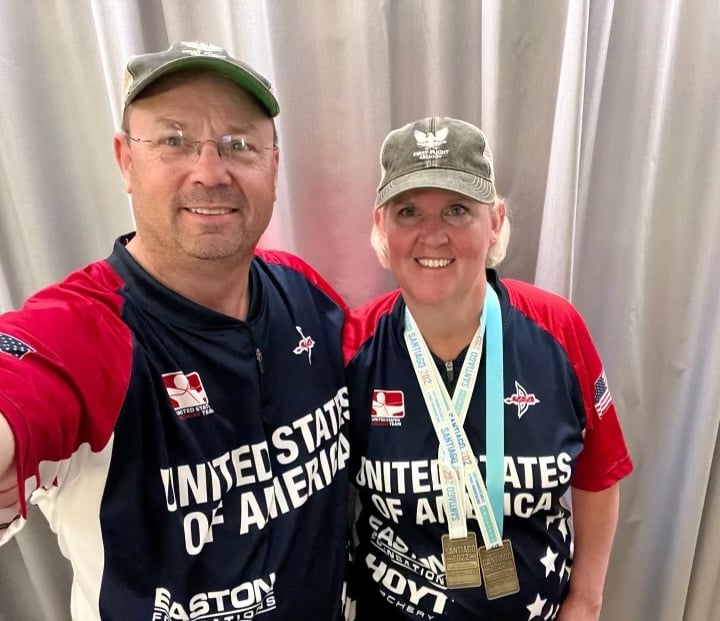
“I hadn’t been able to find a sport that I can do because my whole left side of my body is affected,” Gardner said. “So I can’t run and I really can’t swim and do the usual activities. So I’d kind of given up actually finding something that I could do. We happened to go to a big archery competition because our daughter was interested in it. I saw a guy who has no arms and shoots with his feet and his name is Matt Stutzman. He’s on our team. That is what got me inspired. I thought, if he can do it with no arms and I have one arm I could use, we could find some way for me to do this.”
Wendy and her husband went to work on figuring out some adaptive equipment to help her hone her new craft. She said there are not many resources available to help people with making adaptive archery equipment so they went through a “trial and error” process.
Once the Gardner family got a handle on making adaptive equipment and realized how expensive it could be for others to create their own equipment, they started a nonprofit called GX4 Adaptive Archery.
Her attitude since first suffering her stroke has made all the difference. She said she never expected to be involved in something like the USA Archery Team, and through her determination to try new things—coupled with her relentless effort—Gardner now travels the world doing something she loves.
This includes trips to the United Arab Emirates, Chile and Czech Republic with the team, and she hopes to be in France next summer for the 2024 Paralympic Games.
“I’m always like, ‘Why not me?’ And I would never have done anything like this if this had not happened to me,” Gardner said. “So I always tell people, go try something new. The main thing is show up, you’ve got to show up and don’t be afraid to look foolish doing it. Because sometimes, as someone with a physical disability, you will. But just show up and try and do your best.”
Resources
Stroke Support Network – Upcoming Events
Greenville, N.C. – ECU Health is grateful to elected officials for making Medicaid expansion a reality for more than 600,000 people in the state, including more than 100,000 people here in eastern North Carolina. ECU Health is also grateful to see Healthcare Access and Stabilization Program (HASP) funding included in the bill, providing much-needed relief to rural hospitals across the state.
“This is a historic day for health care in our state and especially here in eastern North Carolina,” said Dr. Michael Waldrum, CEO, ECU Health. “ECU Health has advocated for Medicaid expansion for more than six years as we witness first-hand the challenges uninsured and underinsured patients face. With expanded coverage, more patients can receive the care they need to keep them well. We appreciate lawmakers recognizing the importance of providing coverage for our vulnerable community members and this landmark moment is a major accomplishment that will improve the lives of many families across the state. While Medicaid expansion and HASP funding will not solve all the challenges facing rural health care, ECU Health is grateful to see this important legislation become law.”
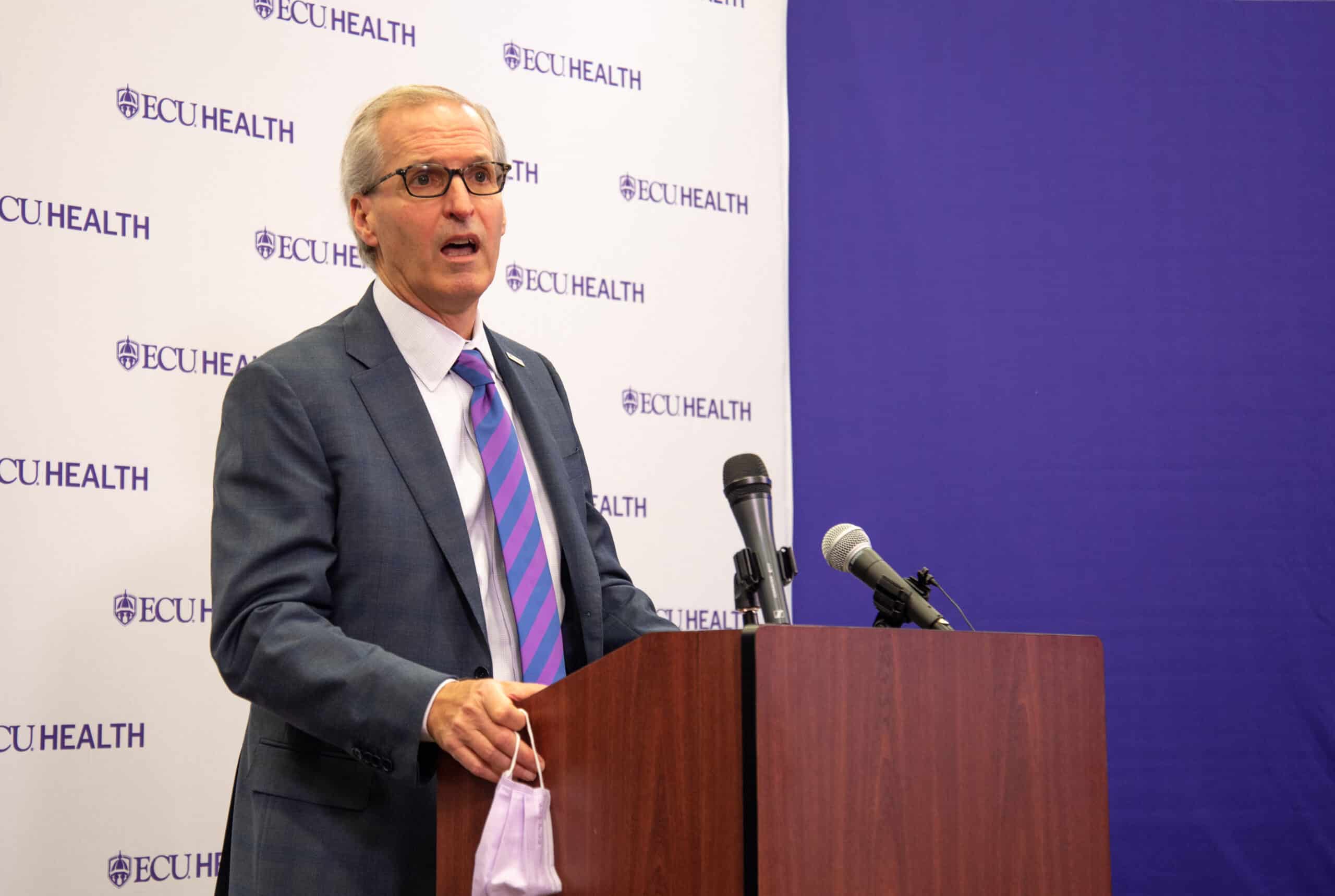
By ECU News Services and ECU Health News
Getting through medical school can be tough – long hours, books and tests, and more books. However, in between classes and all-nighters, two students from the Brody School of Medicine have established a flourishing volunteer program to bring doula-like services to a region of North Carolina starved for birthing support.
The birthing companion program was started in October 2022 by Uma Gaddamanugu and Shantell McLaggan, both second-year Brody students and Schweitzer fellows. The Albert Schweitzer Fellowship supports graduate health professionals drawn from across the state who learn and work to address unmet health care needs in North Carolina.
Gaddamanugu’s and McLaggan’s fellowship project is focused on improving birth experiences of high-risk pregnant mothers in eastern North Carolina through the free birth support program to add an extra layer of support for women in the birthing process.
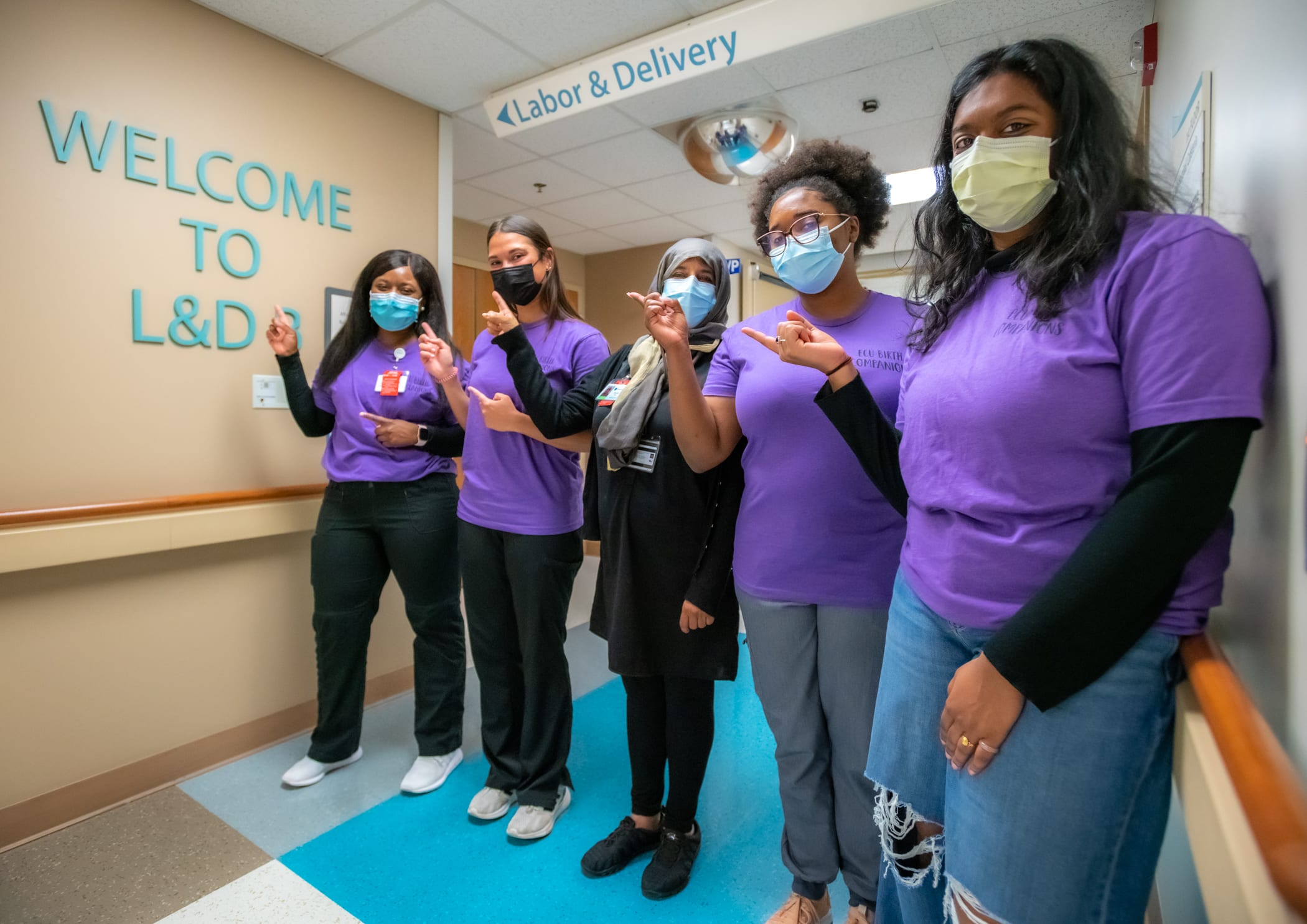
Patient populations in rural parts of eastern North Carolina simply need more help, Winston-Salem native Gaddamanugu said, from prenatal care through the laboring process, and certified doulas are an expensive out-of-pocket resource for which most North Carolinians must pay out of pocket because health insurance often doesn’t cover the cost.
“We are the only hospital with a high-risk labor and delivery unit for half the state. You think about how far some of these people have to travel, which makes it way harder for their support people to come with them,” Gaddamanugu said.
In February 2022, the North Carolina Institute of Medicine reported that the state’s maternal mortality rate was 27.6 per 100,000 births, which is slightly lower than the national average, but more than double the previous year’s rate of 12.1 per 100,000 births.
A 2021 study by the North Carolina Maternal Mortality Review Committee reported that 60 women died from pregnancy related causes from 2014-2016. Of those, nearly 60% were from minority racial categories and more than one in three were from rural areas. What’s more troubling – the study determined that 70% of maternal deaths could have been prevented by changing “patient, family, provider, facility, system and/or community factors.”
The program
At first, the program had 18 volunteers, but since its inception in October 2022 the ranks of birthing support volunteers have doubled to 37. At the beginning of February, the volunteers had assisted with more than 70 births, which is “way past our goal that we had initially set,” Gaddamanugu said.
Volunteers from the program come from a wide range of backgrounds, though most are medical or nursing students. Some are undergraduate students from main campus who want to be part of a program that serves the community. For now, the program is staffed almost completely by ECU students, though Gaddamanugu and McLaggan will soon hand the program’s day-to-day management off to first-year medical students who aim to open the program up to the public.
“Our program is very much modeled off a program at UNC. They’ve been doing that for about 20 years,” Gaddamanugu said. “A Wake Forest medical student started a similar volunteer doula program two years ago through the Schwitzer Fellowship. It’s just neat to see that it was possible with the structure of the organization to bring that program here, because there’s a whole different need in eastern North Carolina.”
Gaddamanugu stressed that the volunteers in the program, who support the labor and delivery services at ECU Health, aren’t certified doulas but rather are there to help during the immediate labor process. For one delivery, that might be a non-clinical, non-medical role – a friendly face and a hand to hold – and in other cases it might be running through the hospital to find a phone charging cable so a mother can stay in contact with her other children at home.
Leslie Coggins, a charge nurse on the labor and delivery unit at ECU Health Medical Center in Greenville, said the volunteer program has been a great success, both for the mothers in the delivery process as well as for students on track to become the next generation of health care providers.
“We’ve always had a great relationship with our residents, but now we have almost a pipeline — doctors, potential doctors, nurses, someone interested in birth and supporting birth in its natural function,” Coggins said. “To share that experience with up-and-coming providers and nurses who will be taking our places someday is huge.”
While the volunteer program is currently staffed by students, the student organizers and Coggins as the nurse manager of the labor and delivery unit hope to soon include members of the public. Those interested in volunteering should contact the program by emailing [email protected].
Training medical professionals
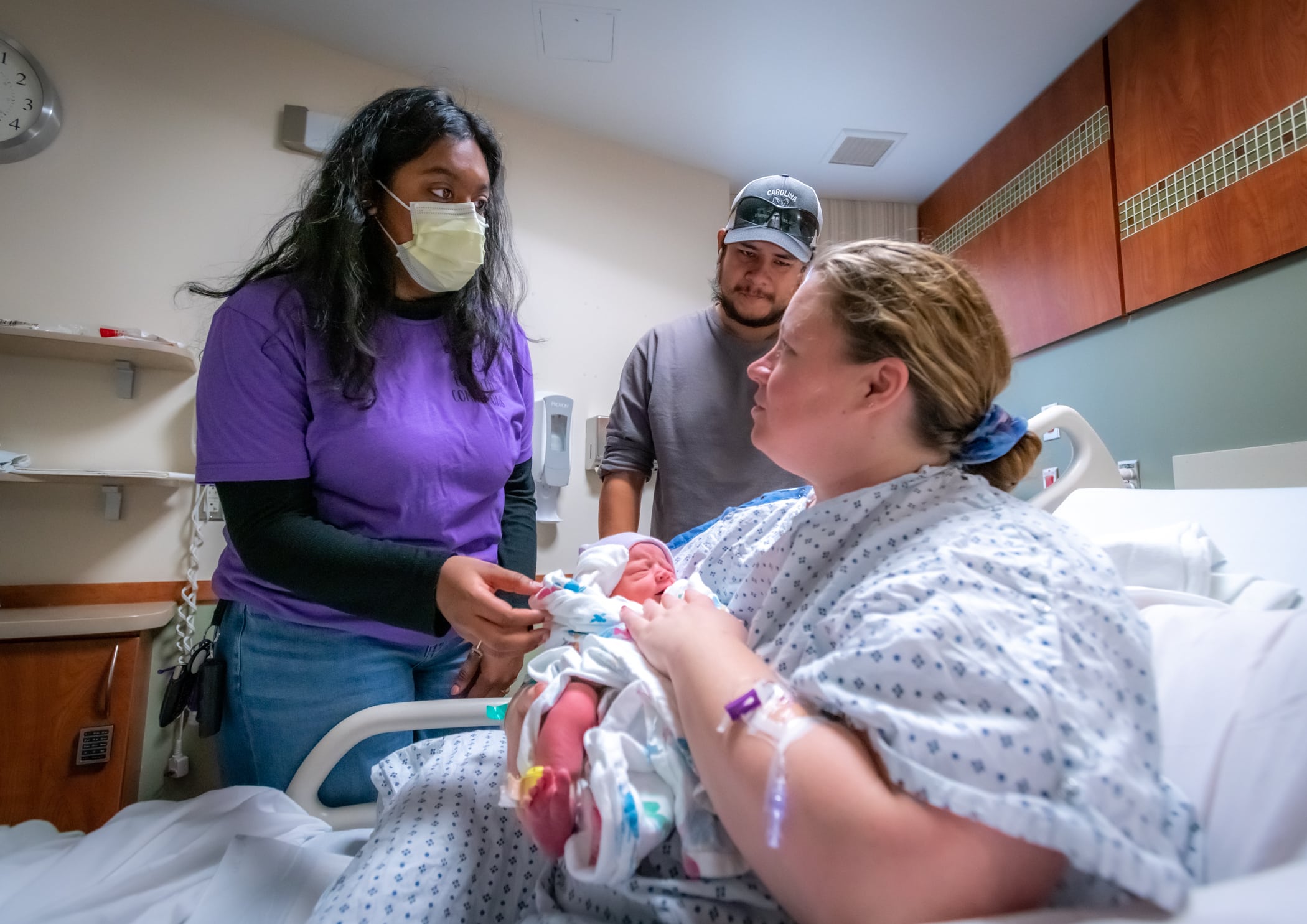
The ECU version of a volunteer birth companion program is rooted in experiences both medical students had working as volunteers in hospitals in doula-like roles. Gaddamanugu volunteered during her time as an undergraduate at UNC; McLaggan, who is from Thomasville, spent several years after her undergraduate education working at the Cherokee Indian Hospital in western North Carolina and helped establish a volunteer doula program there.
Both students are interested in pursuing a career in obstetrics.
McLaggan’s mother told her from an early age that she was smart enough to be a doctor. After researching the requirements and being captivated by the science of medicine, she fell in love with the idea.
“I feel like I have the mental, emotional and the physical capacity to do something as strenuous as being a doctor,” McLaggan said. “Because I have those qualities, I feel like it’s my obligation to become a doctor and serve people to the maximum of my abilities.”
Medicine was also a calling for Gaddamanugu, who said that the challenge is humbling but she sees a future where she can make a difference by “maternal and child health disparities in our community” which fit the impact that she hopes to make in the world.
She said that the experiences at the bedside have colored the conversations that she has with her medical school peers about the experience of medicine from the patient’s perspective.
“We know birth is hard, but here is what it really can look like,” Gaddamanugu said. “The U.S. has an awful maternal mortality crisis, and we can hear those numbers all day long in school, but the numbers don’t mean anything until you see it in person, and you realize some of these patients are extremely sick.”
For Dr. Kerianne Crockett, ECU Health OB/GYN and Brody clinical assistant professor, the program has clear benefits for the patients she serves. She has heard from patients who appreciated having another source of support during their delivery.
“Delivering a baby is one of the most exhausting, exhilarating, sometimes scary experiences of a patient’s life,” Crockett said. “There is good evidence that patients with a continuous support person present throughout labor — whether that person is a family member, a spouse or a doula — have better birth outcomes, including lower rates of cesarean delivery. I am so proud that our bright, compassionate, empathetic medical students are now able to be that continuous support person for all kinds of patients, including those who otherwise would not have had anyone besides the medical team there for their delivery.”
Student involvement in health care delivery, and the unique perspectives students offer patients, is a hallmark of a large academic health system like ECU Health. As students learn from the clinical experience of providers at ECU Health, they are empowered to innovate and bring ideas to the table that lead to better patient experiences and brighter outcomes.
“As an academic health system, our medical students help to enrich the patient experience with their energy and ideas,” said Angela Still, senior administrator of women’s services at ECU Health Medical Center. “The birthing support volunteer initiative is a great example of how Brody students go beyond the walls of the classroom and make a direct impact on the patients we’re proud to serve.”
Serving eastern North Carolina
Sometimes the most important support that a birthing companion can provide comes from skills that can’t be taught in a formal doula class.
McLaggan remembers one time she volunteered with a woman who had a number of kids already — the most recent born by C-section. The medical staff recommended another C-section, which the woman was reluctant to agree to due to the complications she had with the previous birth. The challenge that McLaggan was able to help resolve wasn’t convincing the woman to have a C-section, but rather just communicating with her at all. The woman was Haitian and spoke Haitian Creole and little English.
“I happened to speak French, which is very similar to Haitian Creole, so she was able to communicate to me, where she was coming from and what her needs were,” McLaggan remembered. “I was able to bridge that gap and she ended up delivering naturally. I felt so honored and privileged to have been in the room.”
Another of the volunteers in the program has similar experiences with language gaps being a hindrance to quality health care. An undergraduate student recounted to Gaddamanugu how, growing up in eastern North Carolina, she was always saddled with translating for her mother and siblings during medical appointments — a task that shouldn’t really be shouldered by a young person. The student volunteer said, though tears, that she was so grateful to be able to translate for delivering mothers because she knew first-hand the constricting fear and anxiety of being language-locked in a stressful medical situation.
While the language capabilities that some students bring to the hospital bedside are important, Coggins said, patient populations in eastern North Carolina are getting sicker, which often requires the health care team members to devote their attention to the physiological status of the patient.
“We try to promote natural delivery as much as we can,” Coggins said, but sometimes the medical conditions of the mother and baby require doctors and nurses to focus on the immediate illness. “One-on-one support is essential with our patients. A lot of times our sick population are not from around here and don’t have the support system in place, so this is an added benefit so our nurses can focus on what is medically happening and where we need intervene.”
Gaddamaugu is awed at the privilege of being present at a birth.
“I’ve cried every single time; it’s one or two single tears, but they were C-section babies and you could sense the relief in the OR the moment the baby comes out safe and healthy,” Gaddamaugu said.
McLaggan has known that being in the room during the birthing process is what she has wanted to do since before kindergarten. She’s seen a handful of births as a volunteer and continues to be amazed by each one.
“Words don’t describe how amazing childbirth really is. I get so overwhelmed with emotion when I see 37 to 40 weeks of work and love going into this child that is coming into the world,” McLaggan said.
